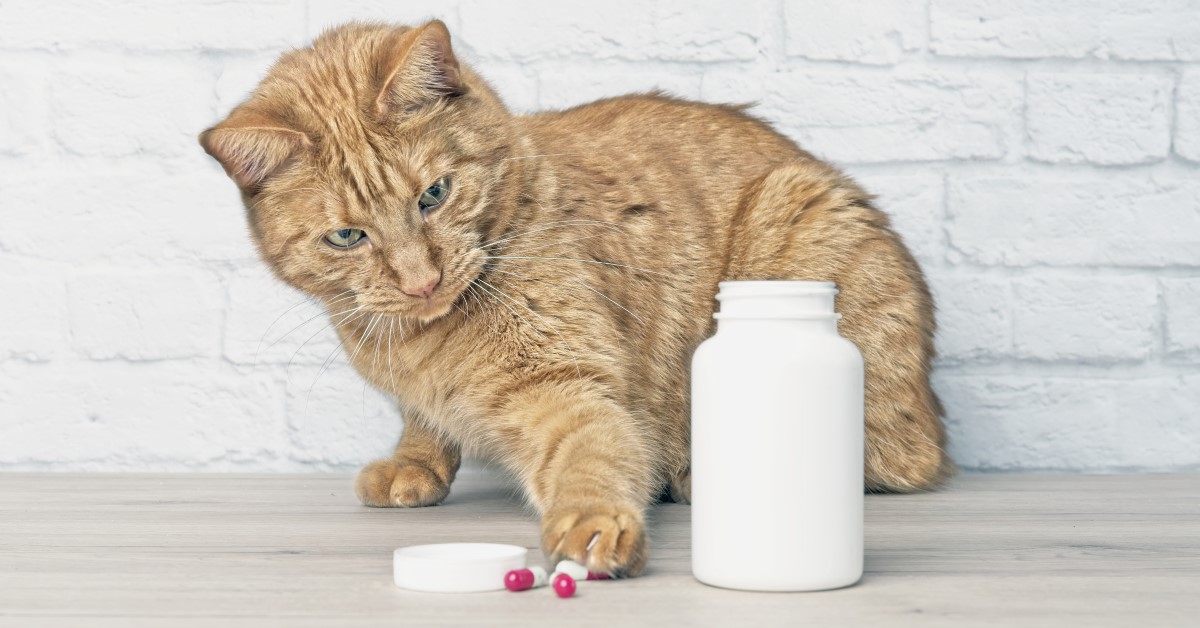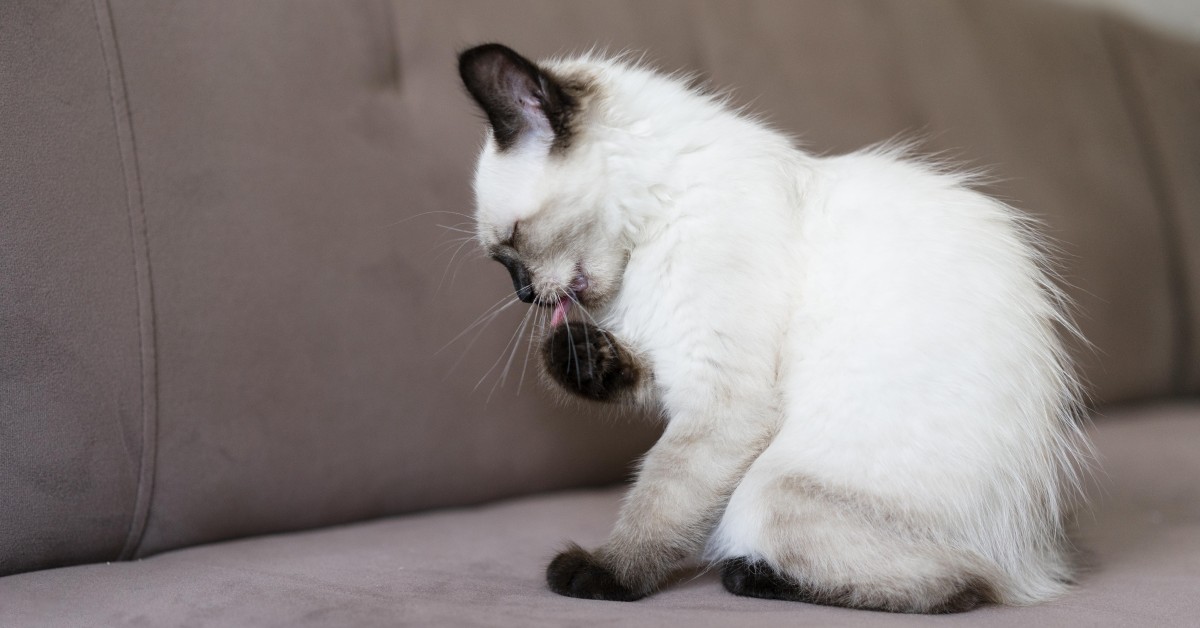Nutritional Supplements for Your Cat
A little extra nutritional help could make a big difference in your kitty's health and wellness.

Cats love their food, and for good reason. Most commercial cat food formulas offer more than just the flavors that felines love -- they also provide a full spectrum of key vitamins and other nutrients. Unfortunately, not all cats can get all their nutritional needs met through food alone, especially if they suffer from health problems. Let's explore the subject of nutritional supplements for cats, from the key nutrients that every cat requires to the health problems or symptoms that may need more specific forms of supplementation.
The Fascinating World of Feline Nutrition
Both cats and dogs need sufficient daily amounts of macronutrients such as carbohydrates, protein, fiber, fat, and water. But that doesn't mean you can feed a cat dog food and rest assured that it will stay healthy. In reality, dogs can get their essential nutrients from a much more diverse range of sources, both plant and animal. Cats are classified as obligate carnivores, meaning that they must get all their nutrition from meat -- ideally a commercial product designed to provide all key nutrients with every meal.
One reason cats must derive their nutrition from meat is that they can't digest plant-based foods efficiently. Another concern is the fact that many common plant-based protein sources, including soy, lack the complete range of amino acids that cats need, such as taurine. (In addition to limiting your cat's diet to meat-based foods, you should also cross milk off of the menu, since most adult cats are actually lactose intolerant.)
Does Your Cat Need Supplements?
Many veterinarians would agree that the average healthy adult cat has no need for nutritional supplementation. However, not all cats qualify as "healthy." For instance, if your cat has been diagnosed with an immune system deficiency, skin problem, digestive condition, or degenerative joint disease, the right nutritional supplements may help you manage the problem. Cats that subsist mainly on a home-cooked diet or table scraps will most likely need some degree of supplementation as well -- unless, of course, you switch their diet to something more nutritionally reliable.
Certain types of nutritional deficiency in cats can manifest themselves in visible symptoms. Watch out for some of the following telltale signs:
- Chronic skin dryness, inflammation, and irritation, or a foul odor emanating from the skin.
- Hair loss unrelated to normal shedding cycles.
- Recurring infections or yeast issues, a sign of poor immune function.
- Lethargy, a signal that your cat isn't deriving enough energy from its everyday diet.
Key Nutrients to Support Your Cat's Well Being
Fortunately, your veterinarian can get to the root of any health issues your cat may exhibit, including those related to nutritional imbalances, and prescribe supplements as needed to turn things around. Key nutrients often supplemented in felines include:
- Vitamin A - Vitamin A helps keep your cat's bones, skin, and eyes in good shape. Cats on medically-restricted diets may need Vitamin A supplementation.
- Vitamin C - Vitamin C supports wound healing and tissue growth. Since this vitamin helps the body absorb iron, it can also help reverse iron deficiency anemia, which some cats develop if they have a poultry-heavy diet.
- B-vitamins - The B vitamins play important roles in helping the body use the energy it gets from food. If your cat has grown lethargic, supplementation with B vitamins could give it a much-needed boost, enabling it to enjoy its favorite activities again.
- Essential fatty acids - Omega-3 fatty acids are probably the best known of these helpful nutrients. They can promote healthier skin by reducing the production of anti-inflammatory substances.
- Digestive support supplements - If your cat has a misbehaving digestive system, probiotics can restore the gut biome to normal. Other supplements called prebiotics can then help your cat maintain optimal digestion by increasing the population of "good" bacteria.
- L-lysine - Some cats suffer from an incurable condition known as feline herpesvirus type 1, or FHV-1. Nutritional supplementation with the amino acid L-lysine can help to reduce the frequency and/or severity of periodic flare-ups.
- Joint pain supplements - Drugs don't always have to be the answer for cats suffering from painful joint conditions such as arthritis. Veterinarians sometimes recommend a combination of glucosamine and chondroitin to help protect the joint cartilage and increase pain-free range of motion. Another supplement, methylsulfonylmethane or MSM, can also help by easing joint inflammation.
- Green-lipped mussel - Green-lipped mussel offers its own inflammation-fighting and pain-relieving properties. Your veterinarian may recommend it to reinforce the effects of other anti-inflammatory supplements.
When In Doubt, Trust Your Vet
Before you give your cat any kind of nutritional supplement, bear in mind that human supplements aren't good for cats, not least because their bodies can't tolerate the quantities of nutrients that we require. You'll want to purchase cat-friendly supplements based on your veterinarian's specific recommendations. The first step involves scheduling a comprehensive wellness exam so you can talk to your practitioner directly. With a little ongoing supervision and care -- including the right nutrition -- your kitty can enjoy many happy, healthy years!
Ready to start saving money on pet wellness care?
Then take a look at Mint Wellness, the pet wellness plan that provides fast reimbursement on routine pet care. Save on vaccinations, wellness exams, preventatives, dental, and more!
Learn More


